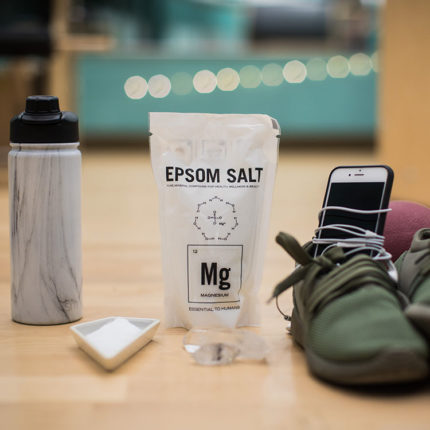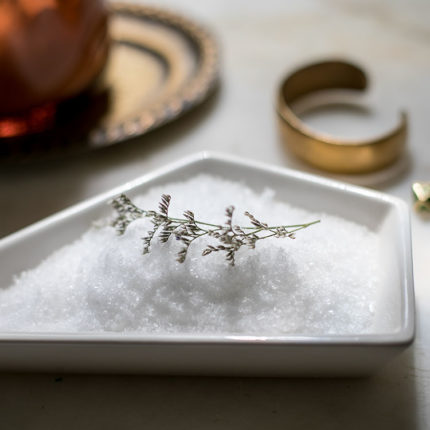As the weather warms, Epsom salt can help your feet feel better, look better, even smell better, according to Dr. Jeffrey Bowman, an award-winning foot doctor who serves on several committees with the American Podiatric Medical Association.
Soaking in Epsom salt can help with a range of foot issues – from athletes who have been exercising aggressively to people with injuries, infections, inflammation or arthritis, said Bowman, who last year received the 1st Chairman’s Award from the American Academy of Podiatric Practice Management for helping other doctors with their practices.
Epsom salt – actually magnesium sulfate – can be absorbed through the skin, Bowman said. That helps ease muscle and joint pain, swollen and inflamed feet, foot and toe fungal infections, and odor and skin problems.
“Epsom salt helps reduce swelling and increase circulation,” said Bowman, past president of the Texas Podiatric Medical Association and an avid runner who soaks in Epsom salt while training.
“There are days when I might do a 14-mile run, and my knees, ankles and feet are pretty sore,” Bowman said. “I’ll soak for a good 15 to 20 minutes, and when I come out, my joints are looser and they don’t hurt as much.”
Bowman recommends the same soak for his patients at Houston Foot Specialists as they battle foot issues. He said Epsom salt can help in several ways, including:
- Easing muscle and joint pain, either from overuse after exercise or from arthritis
- Decreasing swelling and inflammation from trauma or fractures
- Soothing dry skin, which often stems from a lack of magnesium
- Reducing foot odor
- Helping draw out infections from foot and ingrown nails of the toes
Excessive moisture provides a breeding ground for fungus, Bowman said. To prevent that, he recommended three things: wearing acrylic socks that let feet breathe more than cotton socks, getting a second pair of running shoes so the sweat in sneakers has a full 24 hours to dry and soaking your feet in Epsom salt.
Epsom salt acts as a wicking mechanism to help draw out infections from the superficial surface area, the way a cotton tip would remove pus, Bowman said.
“Epsom salt doesn’t kill infections, but it helps with the wicking,” Bowman said. “It gets down into the cellular level, forcing out the infection that would otherwise grow larger.”
People should consult their doctors for serious or persisting conditions, and diabetics should check with their physicians before soaking in Epsom salt, Bowman said.
Note: For human use, the Epsom Salt Council recommends only Epsom salt with the USP designation.





